Choosing between an electric bike (bike) and an electric tricycle can feel like a tough decision, especially with the rise in popularity of both in recent years. Whether you’re looking for convenience, stability, or simply a fun way to get around, each option has unique benefits that cater to different lifestyles. In this blog, we’ll break down the key considerations—from performance and comfort to cost and practicality—to help you decide which is the perfect match for your needs.
1. Effort and Physical Activity
The most important factor when choosing between a normal bike and an e-bike is the level of physical effort and activity you are willing to put in. If you are a fitness-focused rider, a regular tricycle is better, but if you prefer to relax and just enjoy the ride, an E-Bike would be preferable.
Riding and Ebike vs Etrike
- A regular bike requires your full physical effort to pedal, which makes it an excellent choice if you intend to exercise and build cardiovascular health.
- An electric bike, on the other hand, has a motor that provides pedal assistance (or throttle), which allows you to control the level of effort you put into pedaling the bike: you can go from full workout mode to effortlessly cruising.
Best Bike For Exercise

Some Bikes, such as the Breeze Step-Thru Electric Bike from Viribus, even come with a thumb throttle and five different levels of pedal assist to give you more variety in the effort you put in.
- This bike comes with multiple modes for different terrains, sleek road tires for confidence on the highway,
- 26-inch spoke wheel rims for carrying heavier loads
- A double-mechanical disc brake for added safety, it's equipped for all your explorations.
2. Speed and Distance
Anyone buying a bicycle or e-bike is interested in how fast it can go and the maximum distance it can cover. A bicycle is great for shorter casual rides, and an e-bike is preferable for longer commutes or faster rides if you are a speed enthusiast.
Speed and Distance: Bike vs Etrike
- A regular bike is great for short commutes or recreational rides, but can be exhausting on longer routes. Moreover, you can only go as fast as 10-15 mph because the speed depends on how powerful you pedal.
- An electric bike is faster and can reach up to 20-28 mph, depending on the model (with pedal assist or throttle).
- It enables you to travel farther with less fatigue, often up to 20–50 miles per charge (depending on the battery and assist level). In fact, there are Bikes specifically designed for long commutes and/or exploring larger areas.
3. Considering the Riding Terrain
The terrain you intend to ride on also matters when choosing between a regular bike and an e-bike. Whereas an e-bike can tackle both flat roads and hilly areas, a regular bike is mostly suitable for flat terrain.
If you are in peak physical shape or just enjoy the physical challenge of riding a bike on steep hills, you might enjoy riding your bike in a hilly area. But, for the average person, even the effort required to ride a bike on rough or uneven terrain can be quite draining.
A Bike For All Terrain
With an electric bike, you benefit from motorized assistance, which makes climbing hills and riding on challenging terrain much easier. In fact, there are mountain bikes, which are specifically designed to overcome the challenge of riding in the mountains.

The Viribus Panther Electric Bike, with its powerful 350W brush less gear motor and smooth 21-speed Shimano transmission, is built to enable you to conquer challenging terrains effortlessly and feel the rush of adrenaline as you soar through breathtaking landscapes.
5. Environmental Impact
Neither an e-bike nor a regular bike is entirely dangerous to the environment, but both are eco-friendly to different degrees. A regular bike is 100% eco-friendly because it is powered by human effort: there are no emissions or reliance on electricity.
An electric bicycle is environmentally friendly, especially compared to cars or motorbikes, but still requires electricity to charge the battery. However, you can still significantly reduce your carbon footprint with an e-bike if you charge it using renewable resources.
- A bicycle is best if you want zero environmental impact.
- An e-bike is great if you are eco-conscious but want an additional level of convenience.
6. Commuting and Practicality
The distance and purpose of your rides is also a crucial factor when choosing between a regular bike and a Bike. A bicycle is best if your commute is short and simple, and speed is not really a concern. It is also quite easy to find parking spaces because bicycles are usually lightweight and compact.

Dedicated bikes for commuting are known as Cruiser bikes, and the Comforts Cruising Bike from Vicibus shows just how good they can be.
- It comes with a 7-speed Shimano derailleur to comfortably shift gears over long rides or different terrain.
- A chic rattan basket and a rear rack for you to carry your essentials along.
- It is crafted from high carbon steel, and supports riders up to 330 lb for comfortable commutes and adventures.
For Longer Commutes, Choose a Bike
If your commute is longer, and there is a risk of you getting over fatigued, you should go for an Ebike. Some E-bikes can even replace car trips, especially in urban areas, making them a practical alternative for daily transportation.
4. Cost
If you are a budget-conscious rider, cost will play a huge role in whether you choose a bike or an E-Bike. Here’s the deal: regular bicycles are generally more affordable than e-bikes, but if you get a good e-bike, the additional features will more than make up for the extra cost.
- The average price of a regular bicycle ranges between $200 and $1,500 for most models. Electric bikes, on the other hand, are more expensive, typically starting at $1,000 and going up to $5,000 or more for high-end models.
- Also, consider that a regular bike does not have electronics or motor systems to repair, making it less costly to buy and maintain. The higher motor and battery components of an E-Bike can make it really costly to maintain.
So, which choice should a budget-conscious rider go for? Again, it comes down to whether you consider the advanced electric features of the e-bike to be worthy of the extra expenditure. When compared with the features offered, some Bikes could be quite reasonably priced. Consider the…from Vicibus
8. Who Should Choose What?
Choose a Traditional Bicycle If
- You want an affordable option for exercise or short-distance commuting.
- You enjoy the challenge and physical effort of cycling.
- You don’t mind sweating or working harder on hills and long rides.
- You prefer a simpler, low-maintenance ride.
Choose an Electric Bicycle If
- You need to travel long distances without getting exhausted.
- You’re looking for an alternative to a car for commuting or errands.
- You want assistance with hills or challenging terrain.
- You have health or mobility concerns but still want to ride.
The choice boils down to prioritizing effort and fitness or convenience and practicality!




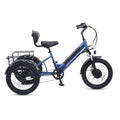
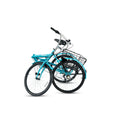
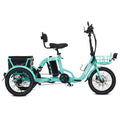

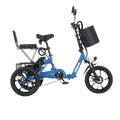






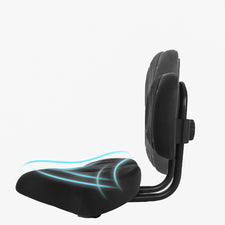





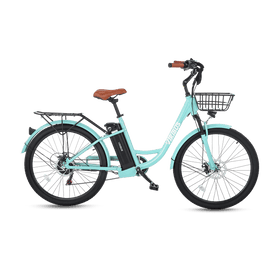
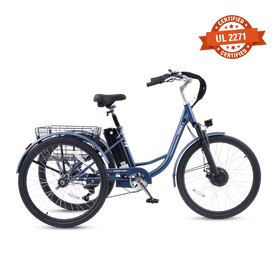
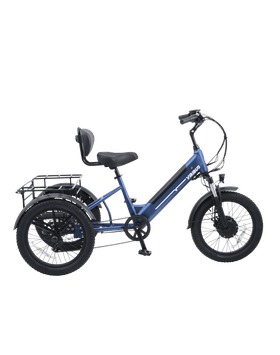



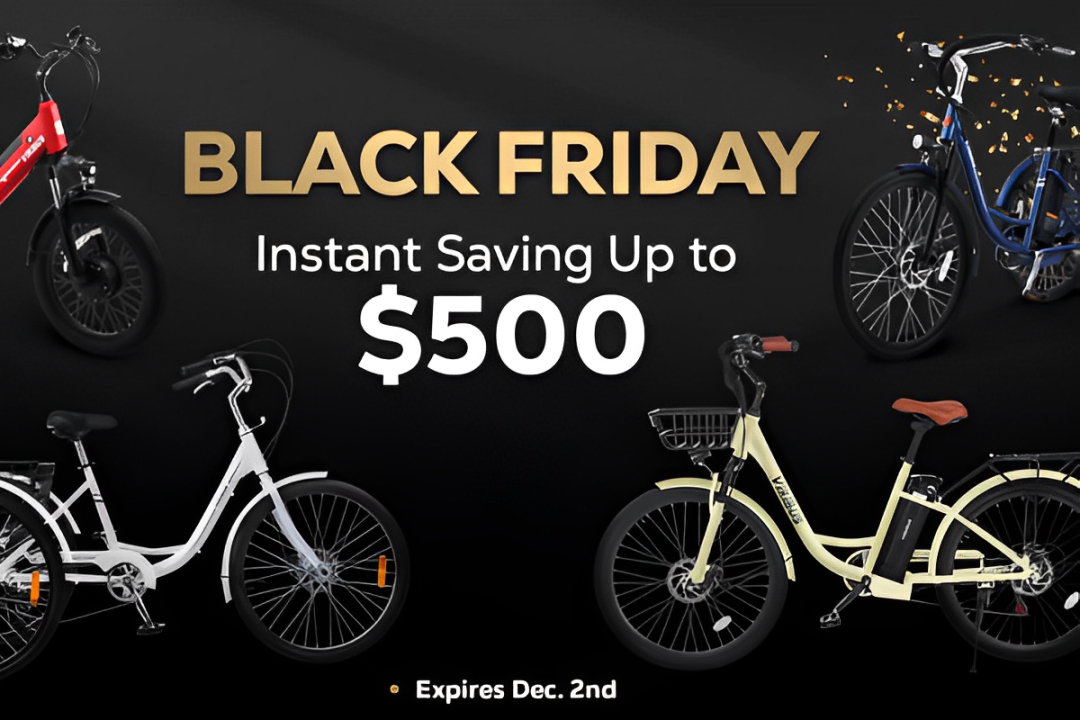
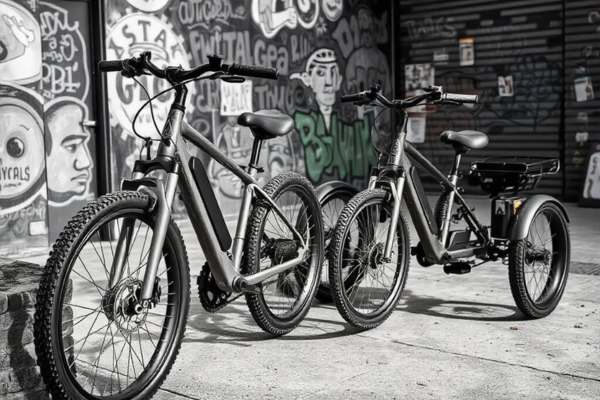
Leave a comment
All comments are moderated before being published.
This site is protected by hCaptcha and the hCaptcha Privacy Policy and Terms of Service apply.